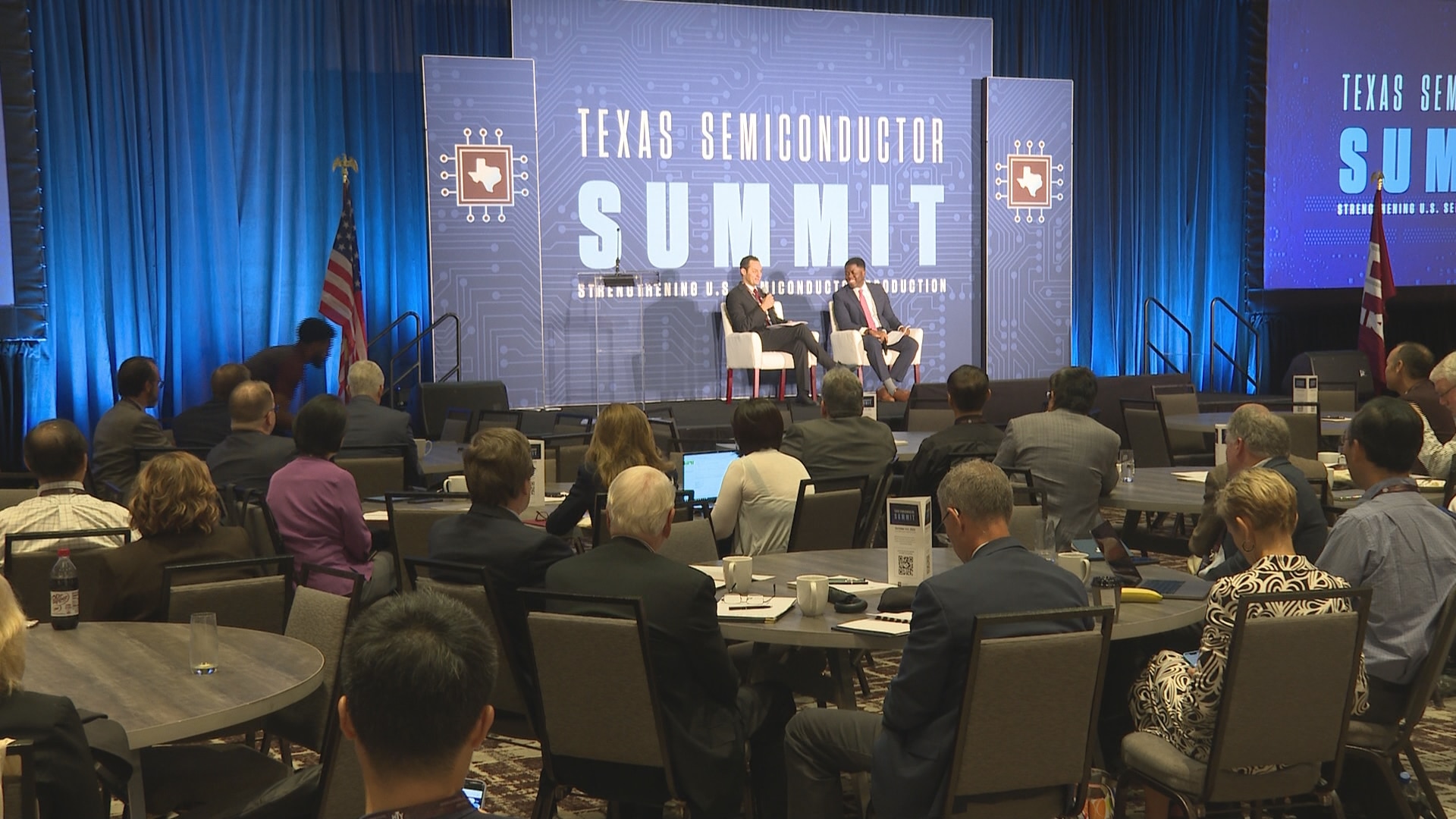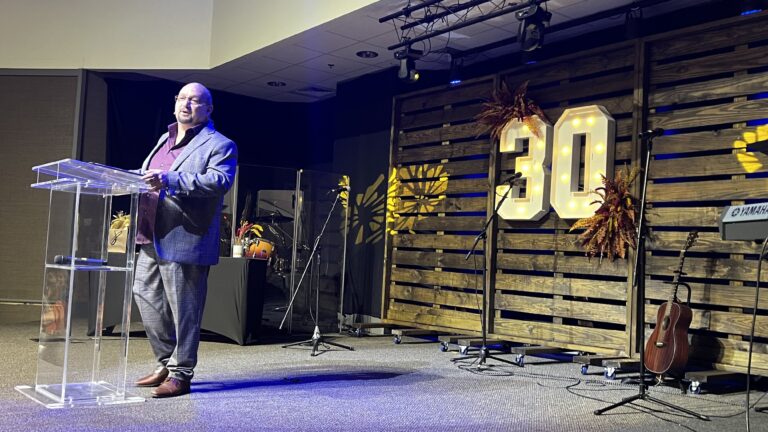Semiconductor Summit brings experts to Aggieland, finding ways to expand production
COLLEGE STATION, Texas (KBTX) – A Texas Semiconductor Summit brought some of the greatest minds from across the country to Aggieland this week.
The group of state, federal and university leaders met at the Texas A&M Hotel and Conference Center to discuss what they’re working on and how they can expand manufacturing. Semiconductors, also known as computer chips, are used in daily products like cars, kitchen gadgets and phones.
“If you use anything that has electronics in it that sends a signal or communicates with something else. It could be not just your phone but your refrigerator, your stove, or your car, a car has over 400 Chips in it. We have to have that domestically produced in the United States,” Marla Dowell, the Director of the CHIPS R&D Metrology Program at the National Institute of Standards and Technology, said.
Guest speakers included those working on expanding Chip manufacturing from Washington D.C. to Austin and also Texas A&M System Chancellor John Sharp. Sharp spoke to the group about the importance of working together and having representation on the federal level.
“It is no small accident that the two primary sponsors of the Chips Act in Washington D.C. were Senator John Cornyn of Texas and Michael McCaul of Texas. In fact, Texas A&M is in Michael McCaul’s district and those two folks want to make sure everybody at the federal level understands that there were two Texans who made all of this possible to begin with,” Chancellor Sharp said.
Texas A&M has been working to decades to prepare students for a career in Chip manufacturing, and now has the Texas A&M Semiconductor Institute. The Director and Associate Vice Chancellor for Research at Texas A&M University System, David Staak, said having a conference like this is vital to the expansion of manufacturing and research.
“The things you learn about what one another is doing when you have a little chat honestly over the snacks as much as it is in these rooms with the presentations is vital. There are things that are said and topics that are discussed that we often don’t have a venue for and so the idea behind this Summit was to bring together everybody to get a chance to talk and bring in some thought leaders so we can learn and contemplate those ideas as well and really better hone everybody’s approach to this problem,” he said. “Those are things that are produced currently overseas, right? So, you know, we talked about the Advanced Technologies that go into mobile devices so without the Chips Act, none of that would have been produced in the US.”
Dowell says those in the room come from diverse backgrounds and hopes seeing conferences like this opens some eyes.
“You don’t have to be an engineer. You can be a physicist like me. You can be a chemist. We need economists. We need business people. We need people who are doing the logistics of moving things through warehouses efficiently. So this really is not just an all-nation approach, it’s an all-discipline approach and I’m hoping that we all step up to solve it,” she said.
Work being done for Chip manufacturing in Texas provides 25% of the nation’s supply.







